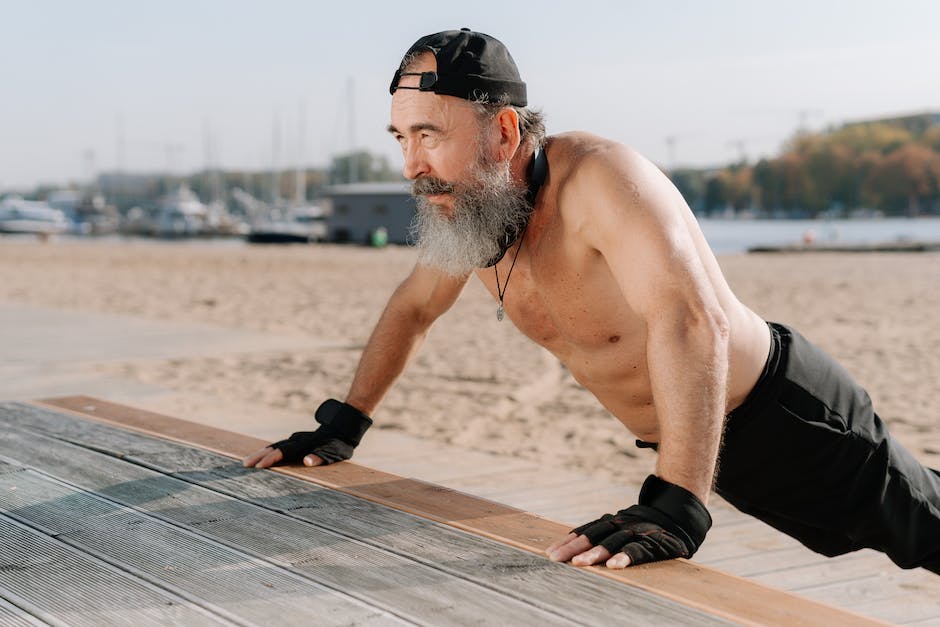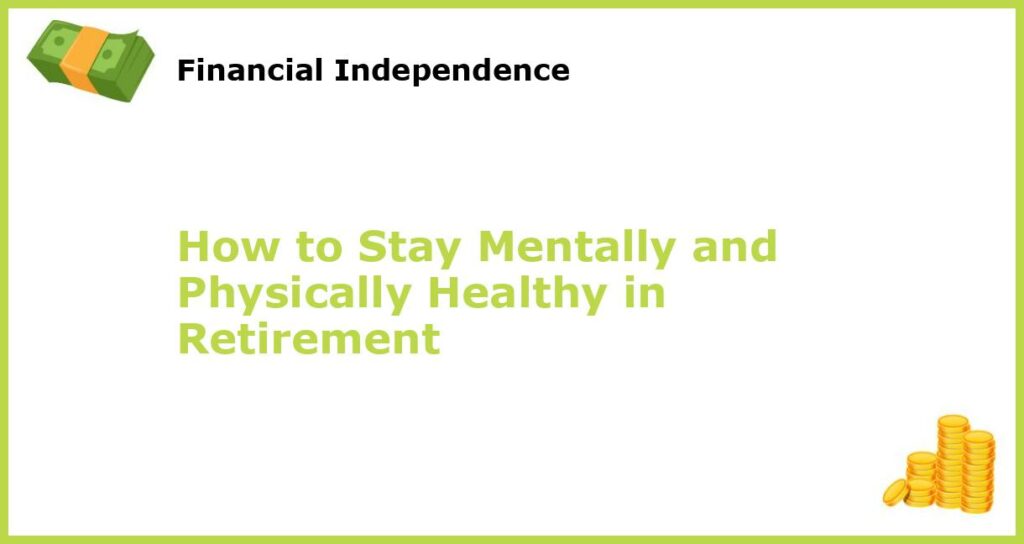Retirement is the time to sit back and relax after a lifetime of hard work. However, it doesn’t mean that you should stop taking care of yourself. In fact, retirement opens up new opportunities for staying healthy physically and mentally. Here are some tips for staying mentally and physically healthy in retirement.
1. Stay Active

Staying active is one of the most important things that you can do for your physical health as well as mental health. It doesn’t necessarily mean that you have to hit the gym or run marathons. It means finding activities that you enjoy doing and making them a part of your daily routine. You can try walking, swimming, gardening or any other activity that gets you moving and keeps your heart rate up. Exercise has a significant impact on your physical health and can help reduce your chances of developing chronic diseases such as heart disease or diabetes. It’s also beneficial to your mental health, reducing stress and anxiety, and boosting your mood.
2. Socialize

Retirement can be a time when people feel isolated and alone. It’s therefore essential to make an effort to socialize with friends and family. Joining a club, volunteering with a local charity, or inviting friends over for dinner are all great ways to stay socially active. Regular social interaction will help keep you mentally sharp and emotionally fulfilled. Maintaining and developing social connections has also been found to reduce the risk of developing Alzheimer’s disease and other forms of dementia.
3. Keep Learning

Retirement does not mean that your learning stopped. In fact, it’s the perfect time to explore new subjects and interests. Taking a class at a local college or community center, learning a new language, or starting a book club are all great ways to keep your mind active and engaged. Learning has been linked to better cognitive functioning in old age, including memory, problem-solving, and decision-making.
4. Eat Well

A healthy diet is essential for maintaining good physical and mental health. It is crucial to aim for a well-rounded diet that is rich in fruits, vegetables, lean proteins, and healthy fats. Limiting the intake of processed foods, sugary snacks, and alcohol, and drinking plenty of water, are keys to good physical and mental health. A balanced diet can also help reduce the risk of chronic diseases such as heart disease, stroke, and cancer.
5. Get Enough Sleep

Sleep is vital for physical and mental health, but many people find that their sleep patterns change in retirement. Aim to get 7-8 hours of sleep each night and establish a relaxing bedtime routine that helps you wind down and prepare for sleep. Getting enough sleep has been associated with better mental health, including improved memory and emotional regulation. Poor sleep can also increase the risk of chronic diseases such as obesity and depression.
6. Prioritize Stress Management
Stress can have a negative impact on both physical and mental health. It is therefore essential to prioritize stress management in retirement. This could mean practicing relaxation techniques such as deep breathing, meditation, or yoga, or seeking support from a therapist or support group. Managing stress can also help reduce the risk of chronic diseases such as heart disease, stroke, and diabetes.
7. Incorporate Strength Training
In addition to cardiovascular exercise, it’s important to incorporate strength training into your routine. Strength training helps maintain bone density, prevent injuries, and improve balance and flexibility. Consider working with a personal trainer or taking a strength training class at your local gym. It is also essential to do regular stretching exercises to keep your body flexible and mobile.
8. Stay Up to Date with Medical Check-Ups
Regular medical check-ups are essential for maintaining good health in retirement. Make sure you stay up to date with recommended screenings and tests, and don’t hesitate to seek medical attention if you notice any changes in your health. Regular check-ups can catch diseases early on when they are more treatable, reducing your chances of developing serious complications.
9. Embrace Technology
Technology can be intimidating, especially for those who didn’t grow up with it. However, it can also be a valuable tool for staying connected with loved ones, accessing information, and engaging in new activities. Consider taking a class on how to use a smartphone, tablet or computer. Staying tech-savvy can also help reduce social isolation and boredom, leading to better physical and mental health.
10. Embrace Change
Retirement can be a time of significant change, and it’s important to embrace it rather than resist it. Embrace opportunities to try new things, meet new people, and explore new places. Make the most of your retirement by staying open to new experiences. Change also keeps your brain active, and trying new things are excellent for boosting your cognitive abilities.







